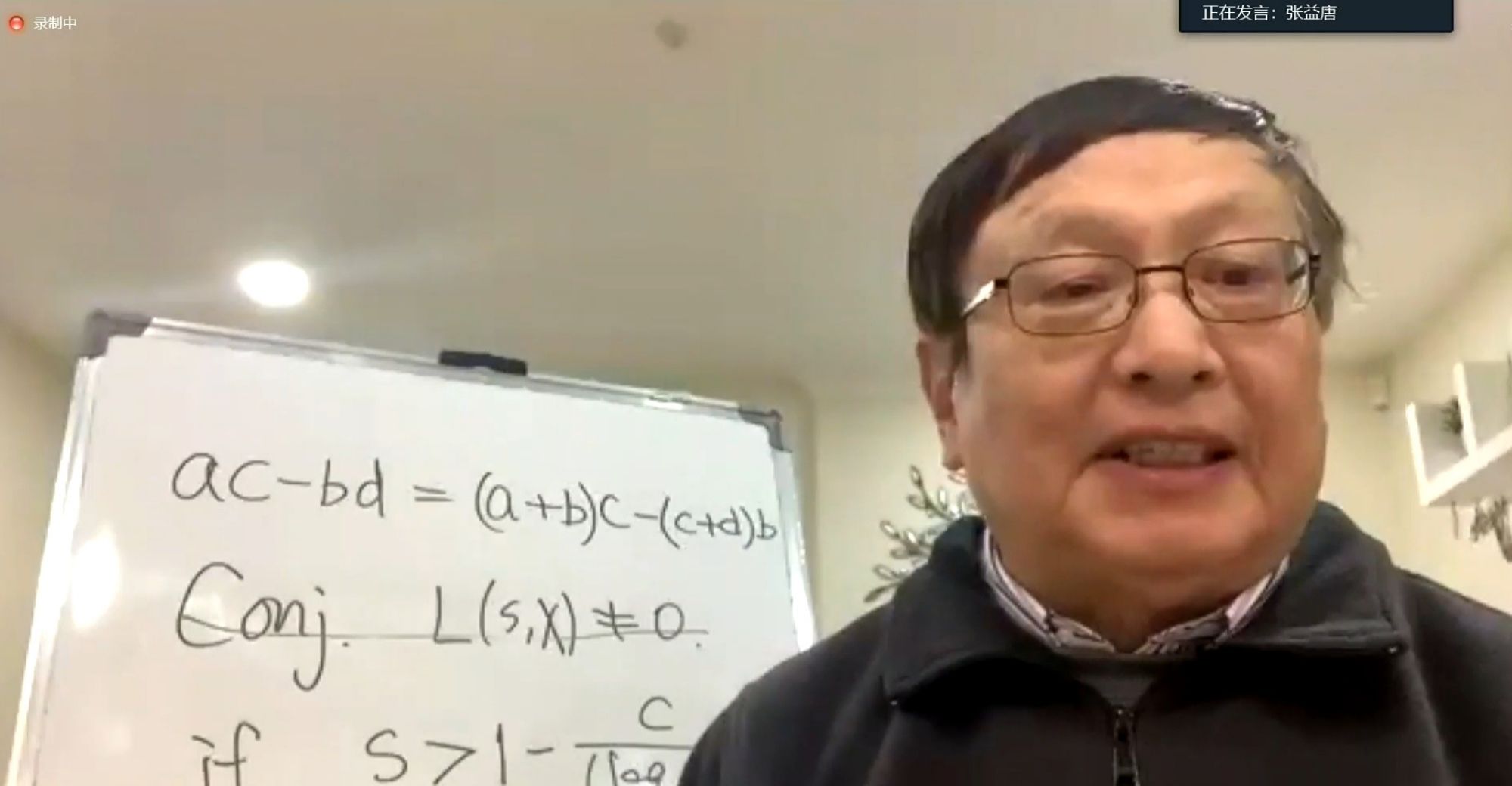Mathematician Yitang Zhang Confirms Partial Solution to Riemann Hypothesis
Yitang (Tom) Zhang, a Chinese-American mathematician who recently revealed that he had solved the Landau-Siegel zeros conjecture, delivered an online speech at Peking University on November 8 to answer external questions on his newly published 111-page paper.
On November 7, Zhang’s new paper, “Discrete Mean Estimates and the Landau-Siegel Zero,” was officially launched on arXiv, an open-access repository of electronic preprints and postprints.
During the speech, Zhang used a whiteboard and a black marker to show the relevant proof formulas by hand and explain the innovations. He gave the speech in Chinese and didn’t use PowerPoint.

Zhang said, “When the paper was posted online just a few days ago, many people who don’t focus on mathematics didn’t understand it, thinking that it was the Landau-Siegel zeros conjecture solved, and some even thought that it proved the Riemann Hypothesis is wrong. Actually, I don’t have this ability. I only partially solve the Riemann hypothesis within a certain range. If I say I overturned Riemann Hypothesis, few people would believe it.”
He pointed out that, in essence, he had proved the Landau-Siegel zeros conjecture. Just like his previous research results on the conjecture of twin prime numbers, the results can be improved. The latest research breakthrough will have many applications and will bring about many theorems. While communicating with students, Zhang admitted that there are some figures in his thesis and there is room for further proof, explanation or overall simplification.
SEE ALSO: Chinese-American Mathematician Yitang Zhang Publishes Paper on Landau-Siegel Zeros Conjecture
A WeChat account for Princeton University alumni wrote that Jeffrey Stopple, Zhang’s colleague and an analytical number theory expert who once said that “if Zhang can prove the Landau-Siegel zeros conjecture, it is equivalent to a person being struck by lightning twice,” pointed out that Zhang’s achievements can be used to study the problem of idoneal numbers left by Euler and Gauss, turning it into a finite calculation. Of course, everything is based on the validity of Zhang’s thesis.
Zhang is considered to be a legendary mathematician because of his rough life experience and outstanding academic achievements. He went abroad to study at the age of 30 and was nearly 60 when he published his important paper. At an alumni association event of Peking University, in response to the question, “does mathematics research need abnormal talent?” Zhang responded, “Don’t think too much, do it first. Talent may need to be stimulated.”


